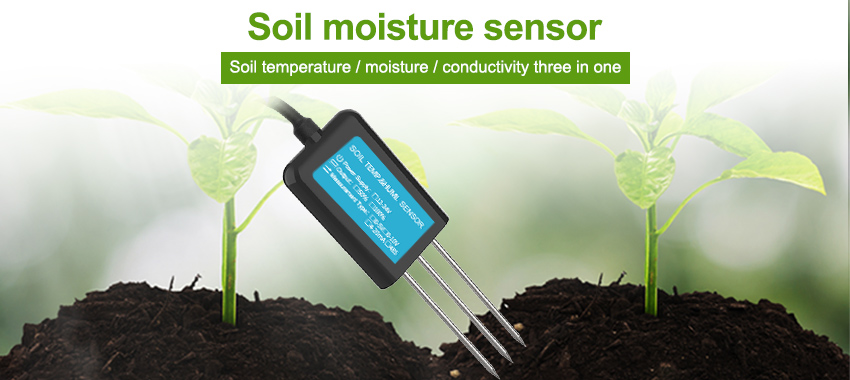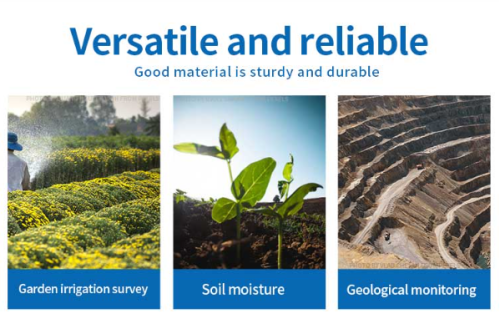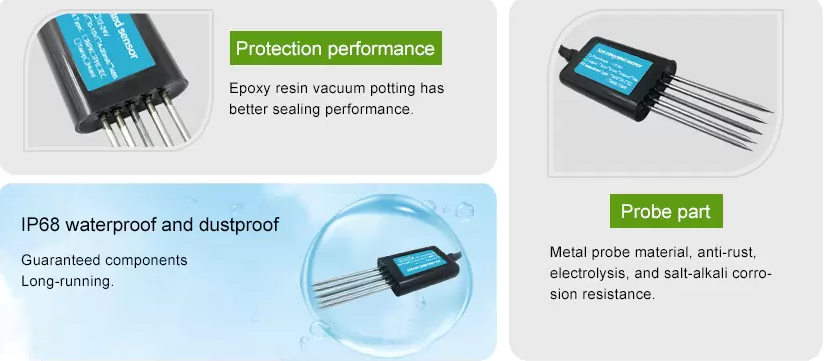To accurately monitor and manage soil moisture levels, investing in the best soil moisture meter is essential. Maintaining proper soil moisture is crucial for plant health and successful gardening. In this article, we will explore the importance of selecting the right soil moisture meter, factors to consider when choosing one, and the benefits it provides for optimal plant growth.

The Importance of the Best Soil Moisture Meter
Choosing the best soil moisture meter offers several advantages for both professional growers and garden enthusiasts. Accurate monitoring of soil moisture levels ensures that plants receive the right amount of water, preventing under or overwatering. It enables precise irrigation control, leading to healthier plants, reduced water waste, and improved overall gardening success. Additionally, a reliable soil moisture meter allows prompt detection of moisture-related issues, such as drainage problems or root disease, enabling timely intervention to prevent plant damage.
Factors to Consider When Choosing a Soil Moisture Meter
When selecting the best soil moisture meter, there are several key factors to consider:

Sensor Type:
Soil moisture meters typically use either electrical conductivity or capacitance sensors. Electrical conductivity sensors are suitable for measuring moisture in sandy soils, while capacitance sensors are more effective in loamy or clay soils. Understanding your soil type will help you choose the appropriate sensor type.
Measurement Range:
Different plants have varying moisture requirements. Ensure that the moisture meter’s measurement range aligns with the needs of the plants you intend to monitor. A wider measurement range offers greater versatility.
Display and Readability:
Look for a moisture meter with a clear, easy-to-read display. Some meters have digital displays that provide precise moisture readings, while others use color-coded scales for quick visual assessment.
Probe Length:
The probe length determines how deeply you can insert the meter into the soil. Consider the depth at which you want to measure moisture and select a meter with an appropriate probe length.
Additional Features:
Some soil moisture meters offer additional features such as temperature measurement, light intensity measurement, or data logging capabilities. These features can provide a more comprehensive understanding of plant health and aid in gardening optimization.
Benefits of Best Soil Moisture Meters
Investing in the best soil moisture meter offers numerous benefits:

Precise Watering Management:
Accurate moisture readings enable you to water plants based on their specific needs, ensuring optimal hydration without the risk of overwatering or underwatering.
Early Detection of Issues:
Monitoring soil moisture levels allows you to identify moisture-related problems promptly, such as dry spots or excessive saturation, enabling timely intervention before plant health deteriorates.
Cost and Resource Efficiency:
By avoiding overwatering, you can save on water usage and reduce unnecessary water expenses. Additionally, optimal watering practices minimize fertilizer runoff, promoting ecological sustainability.
Enhanced Plant Health and Growth:
Proper soil moisture management promotes robust root development, nutrient absorption, and overall plant vitality. The best soil moisture meters facilitate the creation of ideal growing conditions, leading to healthier and more productive plants.
Conclusion
Selecting the best soil moisture meter is crucial for maintaining optimal soil moisture levels and promoting healthy plant growth. Factors such as sensor type, measurement range, display readability, probe length, and additional features should be considered when choosing a meter. By investing in a reliable soil moisture meter, you gain precise control over irrigation, early detection of moisture-related issues, resource efficiency, and improved plant health. With the right tool at your disposal, you can create an environment that fosters thriving gardens and flourishing plants.